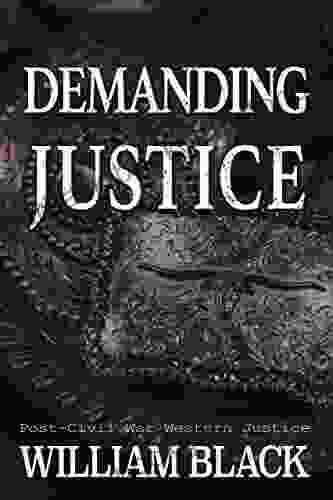Demanding Justice: Post-Civil War Western Justice and Its Impact on American Society

The American Civil War left an indelible scar on the nation, and its aftermath was a time of great turmoil and upheaval. In the West, the war had created a lawless frontier, where people took the law into their own hands, leading to a surge in violence and vigilantism.
4.3 out of 5
| Language | : | English |
| File size | : | 1724 KB |
| Text-to-Speech | : | Enabled |
| Screen Reader | : | Supported |
| Enhanced typesetting | : | Enabled |
| Word Wise | : | Enabled |
| Print length | : | 393 pages |
| Lending | : | Enabled |
The challenges of establishing justice in the post-Civil War West were immense. The vast distances and sparse population made it difficult for law enforcement to reach remote areas, and the lack of a strong central government meant that local officials often had to rely on their own resources to maintain order.
As a result, many communities resorted to frontier justice, a system of extra-legal punishment that was often swift and brutal. Vigilante groups would form to track down and punish criminals, and lynchings were common.
The Dangers of Frontier Justice
While frontier justice may have provided a sense of swift retribution, it also raised serious concerns about due process and the rule of law. Innocent people were often caught up in the violence, and the lack of a fair trial meant that punishments could be arbitrary and excessive.
In one notorious case, a group of vigilantes in Montana lynched a man named John Bozeman for allegedly stealing horses. Bozeman was never given a trial, and his guilt was never proven. The vigilantes' actions sparked outrage across the nation, and they were eventually arrested and charged with murder.
The Need for a Strong Central Government
The case of John Bozeman highlighted the need for a strong central government that could enforce the law and protect citizens from the excesses of frontier justice. In 1871, Congress passed the Enforcement Act, which gave the federal government the authority to intervene in cases where local officials were unable or unwilling to uphold the law.
The Enforcement Act had a significant impact on the West. It allowed the federal government to prosecute vigilantes and other lawbreakers, and it helped to restore a sense of order to the frontier. However, the Enforcement Act was also controversial, and it was criticized for being too heavy-handed and for infringing on the rights of states.
The Legacy of Post-Civil War Western Justice
The challenges of establishing justice in the post-Civil War West left a lasting impact on American society. The struggle between frontier justice and the rule of law continues to resonate today, and the debate over the proper balance between the two remains a complex and challenging one.
However, the post-Civil War West also saw the birth of some of the most important legal institutions in American history. The Supreme Court's decision in Ex parte Milligan (1866) affirmed the right to a fair trial during wartime, and the Fourteenth Amendment (1868) guaranteed the equal protection of the laws to all citizens.
These principles have become the cornerstone of American jurisprudence, and they have helped to ensure that the rule of law prevails over the chaos and violence of the frontier.
The post-Civil War West was a time of great turmoil and upheaval. The challenges of establishing justice in this lawless frontier were immense, and the solutions were often imperfect.
However, the post-Civil War West also saw the birth of some of the most important legal institutions in American history. The Supreme Court's decision in Ex parte Milligan (1866) and the Fourteenth Amendment (1868) have helped to ensure that the rule of law prevails over the chaos and violence of the frontier.
The legacy of post-Civil War Western justice is a complex and challenging one. However, it is also a reminder of the importance of the rule of law and the need for a strong central government to protect citizens from the excesses of frontier justice.
4.3 out of 5
| Language | : | English |
| File size | : | 1724 KB |
| Text-to-Speech | : | Enabled |
| Screen Reader | : | Supported |
| Enhanced typesetting | : | Enabled |
| Word Wise | : | Enabled |
| Print length | : | 393 pages |
| Lending | : | Enabled |
Do you want to contribute by writing guest posts on this blog?
Please contact us and send us a resume of previous articles that you have written.
 Best Book
Best Book Page Flip
Page Flip Bookshelf
Bookshelf Literary loom
Literary loom Chapter
Chapter Bookish
Bookish PageTurner
PageTurner Bibliophile
Bibliophile Story
Story Inkwell
Inkwell Bookworm
Bookworm Labyrinth
Labyrinth Plot Twist
Plot Twist Prose
Prose Paperback
Paperback Storyteller
Storyteller Sanctuary
Sanctuary Fiction
Fiction Reading
Reading Chronicle
Chronicle Read
Read Paula Kamen
Paula Kamen Terry Pratchett
Terry Pratchett Ruth Superhal
Ruth Superhal Joseph Doddridge
Joseph Doddridge Bernth Lindfors
Bernth Lindfors Michael Wise
Michael Wise Lena Corwin
Lena Corwin Lexi Sundell
Lexi Sundell Erica Davies
Erica Davies Kolbie Blume
Kolbie Blume Justin Woolley
Justin Woolley Ros Per
Ros Per Bley Hack
Bley Hack Bonnie Barker
Bonnie Barker Ulysses S Grant
Ulysses S Grant Taylor Jenkins Reid
Taylor Jenkins Reid Spencer Shaw
Spencer Shaw Ella Frances Sanders
Ella Frances Sanders Terry Compton
Terry Compton Jenny Mckay
Jenny Mckay Jennifer Wilson
Jennifer Wilson Saul Tanpepper
Saul Tanpepper Lucinda Fleeson
Lucinda Fleeson Baoshu
Baoshu Bianca Del Rio
Bianca Del Rio Roman Mars
Roman Mars Simon Turney
Simon Turney Kristen Dutkiewicz
Kristen Dutkiewicz Alan O Brien
Alan O Brien Yvonne Blackwood
Yvonne Blackwood Gerri Leen
Gerri Leen Richard Sorger
Richard Sorger Patricia Sands
Patricia Sands Brandon Varnell
Brandon Varnell James Grady
James Grady Keith Doyle
Keith Doyle Stuart D Paine
Stuart D Paine Ken Browar
Ken Browar Nefertiti Austin
Nefertiti Austin Saxon Andrew
Saxon Andrew Bob Elliott
Bob Elliott Partha Mitter
Partha Mitter Rainer Maria Rilke
Rainer Maria Rilke Diane Gensler
Diane Gensler Shoko Tendo
Shoko Tendo Leon Smith
Leon Smith Benjamin Hochman
Benjamin Hochman Ilan Stavans
Ilan Stavans Fiona Peart
Fiona Peart Barry Lord
Barry Lord Jessica Marting
Jessica Marting Matthew Luzi
Matthew Luzi Nolan Clark
Nolan Clark Lowell Angell
Lowell Angell Samuel Peralta
Samuel Peralta Matthew Morgante
Matthew Morgante Leo Buijs
Leo Buijs Becky Chambers
Becky Chambers Bethany C Morrow
Bethany C Morrow John Scarne
John Scarne Tershia Lambrechts
Tershia Lambrechts Zora O Neill
Zora O Neill Tom Wiener
Tom Wiener Joseph Lanza
Joseph Lanza Darrel Rees
Darrel Rees F Scott Fitzgerald
F Scott Fitzgerald Betty Dooley Awbrey
Betty Dooley Awbrey Barbara Hambly
Barbara Hambly Beatrice Sonders
Beatrice Sonders Paul Kendall
Paul Kendall Shirtaloon
Shirtaloon Noel Riley Fitch
Noel Riley Fitch Sir Richard Francis Burton
Sir Richard Francis Burton Bernice L Mcfadden
Bernice L Mcfadden Sarah Mirk
Sarah Mirk Bill Winner
Bill Winner Sophia Rolle
Sophia Rolle Michael Anderle
Michael Anderle Benjamin John Coleman
Benjamin John Coleman Wesley Jones
Wesley Jones Eddie Chambers
Eddie Chambers Michael Haag
Michael Haag David E Lowe
David E Lowe Suzette Riddick
Suzette Riddick Chris Nashawaty
Chris Nashawaty Ibl Press
Ibl Press B V Larson
B V Larson Bill Plympton
Bill Plympton Bill Cotter
Bill Cotter Jan V White
Jan V White Blakely Little
Blakely Little Elena Gorokhova
Elena Gorokhova Sandra Duran Wilson
Sandra Duran Wilson Jpinsiders
Jpinsiders J P Telotte
J P Telotte Dave Hickey
Dave Hickey Brad Lee
Brad Lee Robert Crais
Robert Crais Mateo Askaripour
Mateo Askaripour Tori Rodriguez
Tori Rodriguez Khadijah J
Khadijah J Lauren Meisner
Lauren Meisner Poppy Evans
Poppy Evans Eric Henze
Eric Henze James Haddock
James Haddock Terry Lee Stone
Terry Lee Stone Rohan M Vider
Rohan M Vider Boris Mihailovic
Boris Mihailovic Bill Bensley
Bill Bensley Deborah Forman
Deborah Forman Greg Mitchell
Greg Mitchell John G Breslin
John G Breslin Daniel Rachel
Daniel Rachel Shing Schih
Shing Schih Michael Chatfield
Michael Chatfield Paraluman S Aspillera
Paraluman S Aspillera Brad Taylor
Brad Taylor Jane Pek
Jane Pek Paul S Leland
Paul S Leland Jonathan C Slaght
Jonathan C Slaght D L Harrison
D L Harrison Diane Duane
Diane Duane Pam Flowers
Pam Flowers Michael Shaara
Michael Shaara Ian Nathan
Ian Nathan Tim Rangnow
Tim Rangnow Behrouz Boochani
Behrouz Boochani Edward Gibbon
Edward Gibbon Malala Yousafzai
Malala Yousafzai Betsy Dillard Stroud
Betsy Dillard Stroud Billie Rae Bates
Billie Rae Bates Ben Box
Ben Box Barry Sonnenfeld
Barry Sonnenfeld Mark Tufo
Mark Tufo Laney Salisbury
Laney Salisbury Dori Jones Yang
Dori Jones Yang Dean A Kowalski
Dean A Kowalski J C Sum
J C Sum Shane Mitchell
Shane Mitchell Claude Lanzmann
Claude Lanzmann William A Kappele
William A Kappele Michael Doyle
Michael Doyle Umm Zakiyyah
Umm Zakiyyah Monica Walters
Monica Walters Jonathan Lopez
Jonathan Lopez Hillary Jordan
Hillary Jordan Terese Marie Mailhot
Terese Marie Mailhot Barbie Scott
Barbie Scott Michael Mammay
Michael Mammay Matthew J Milliner
Matthew J Milliner Maggie Ramsay
Maggie Ramsay Bengie Molina
Bengie Molina Loring M Danforth
Loring M Danforth David Byrne
David Byrne Beverly J Armento
Beverly J Armento Eric Gibson
Eric Gibson Jennifer Sewing
Jennifer Sewing Individual Way
Individual Way Barry Moser
Barry Moser Lucy Jane Bledsoe
Lucy Jane Bledsoe George H Gisser
George H Gisser Basil Johnston
Basil Johnston Patrick Symmes
Patrick Symmes Ernst Rettelbusch
Ernst Rettelbusch Sheila Montilla
Sheila Montilla Thomas S Hischak
Thomas S Hischak Laurent Bolard
Laurent Bolard William Lidwell
William Lidwell Hayao Miyazaki
Hayao Miyazaki Fania E Davis
Fania E Davis Bobby Brown
Bobby Brown Debbie Rose Myers
Debbie Rose Myers Ottessa Moshfegh
Ottessa Moshfegh Peter Inglis
Peter Inglis Blaise Corvin
Blaise Corvin Sophie Cunningham
Sophie Cunningham David Elliot Cohen
David Elliot Cohen Philip Guston
Philip Guston Dalili
Dalili George Lopez
George Lopez Michael Winter
Michael Winter Rosemary Kimani
Rosemary Kimani Ben Strand
Ben Strand Deanne Stillman
Deanne Stillman Yoshitaka Amano
Yoshitaka Amano Stephanie Claytor
Stephanie Claytor Mariana Atencio
Mariana Atencio Bonny Pierce Lhotka
Bonny Pierce Lhotka Ben Coes
Ben Coes Theda Perdue
Theda Perdue Betty Halbreich
Betty Halbreich Barbara Lewis
Barbara Lewis Gavin Maxwell
Gavin Maxwell Bart King
Bart King Gabrielle Euvino
Gabrielle Euvino Brent Eviston
Brent Eviston C Pierce Salguero
C Pierce Salguero Jonathan Waterman
Jonathan Waterman Leanne Kitchen
Leanne Kitchen Barrington Barber
Barrington Barber Chris Roel
Chris Roel Helmut Kopka
Helmut Kopka Bandana Ojha
Bandana Ojha Charlise Lyles
Charlise Lyles Lorraine De Meaux
Lorraine De Meaux Tim Stokes
Tim Stokes Nelson Demille
Nelson Demille Ashley Jaquavis
Ashley Jaquavis Ben Eastham
Ben Eastham Betsy Whyte
Betsy Whyte Becky Stephen
Becky Stephen Sergio Toppi
Sergio Toppi Hildegarde Mahoney
Hildegarde Mahoney Lynne Anne Blom
Lynne Anne Blom Clifford D Simak
Clifford D Simak David V Jervis
David V Jervis James Goddard
James Goddard Joseph M Henninger
Joseph M Henninger Tiana Bighorse
Tiana Bighorse Bolu Babalola
Bolu Babalola Charlie Jane Anders
Charlie Jane Anders Bill Bryson
Bill Bryson George Schindler
George Schindler Thomas P Stafford
Thomas P Stafford Denis Dutton
Denis Dutton Barbara Bradley
Barbara Bradley Barack Obama
Barack Obama Jacinda Townsend
Jacinda Townsend Susan Herrmann Loomis
Susan Herrmann Loomis Bella Martin
Bella Martin Bil Donovan
Bil Donovan Jennie Smallenbroek
Jennie Smallenbroek Shanora Williams
Shanora Williams Ian Chilvers
Ian Chilvers Marty Noble
Marty Noble Harmon Cooper
Harmon Cooper Dana Fox
Dana Fox Marina Warner
Marina Warner Jack Finney
Jack Finney Steven Campbell
Steven Campbell Jodi Staniunas Hopper
Jodi Staniunas Hopper Joanne Hutchinson
Joanne Hutchinson Vanessa Zoltan
Vanessa Zoltan Jane L Rosen
Jane L Rosen Ebony Diamonds
Ebony Diamonds Ben D Over
Ben D Over Gillian Gloyer
Gillian Gloyer John Muir
John Muir John H Vanderpoel
John H Vanderpoel Maggie Craft
Maggie Craft Mary Brave Bird
Mary Brave Bird Lucy Adlington
Lucy Adlington David Airey
David Airey Sara Boccaccini Meadows
Sara Boccaccini Meadows David Fisher
David Fisher John Seed
John Seed Matt Smith
Matt Smith Beryl Markham
Beryl Markham Stephen C Baldwin
Stephen C Baldwin Bella Blair
Bella Blair Bich Minh Nguyen
Bich Minh Nguyen Stephen Haff
Stephen Haff Margaret Kessler
Margaret Kessler Dean Koontz
Dean Koontz Kevin Hart
Kevin Hart Noret Flood
Noret Flood Diane Tuckman
Diane Tuckman Elaine A Clark
Elaine A Clark John E Siers
John E Siers Koloman Moser
Koloman Moser Sejal Shah
Sejal Shah Katja Petrowskaja
Katja Petrowskaja Silvia Marina Arrom
Silvia Marina Arrom Tom Wilson
Tom Wilson Bassey Ikpi
Bassey Ikpi Charlotte Fiell
Charlotte Fiell Baby Professor
Baby Professor Bob Drury
Bob Drury Bernice Lerner
Bernice Lerner Cornelius C Kubler
Cornelius C Kubler Doug Risner
Doug Risner Barbara Miller
Barbara Miller Mary Matsuda Gruenewald
Mary Matsuda Gruenewald Mario Rizzi
Mario Rizzi Elisabeth Elliot
Elisabeth Elliot Benjamin Lewin
Benjamin Lewin Edward White
Edward White Bonny Snowdon
Bonny Snowdon Kerry Bogert
Kerry Bogert Lynne Olson
Lynne Olson D A Miller
D A Miller Yiyun Li
Yiyun Li Blake Farha
Blake Farha C J Boyle
C J Boyle Tony Horwitz
Tony Horwitz Bob Herbert
Bob Herbert Louis Wain
Louis Wain Greg O Brien
Greg O Brien Wayne Moniz
Wayne Moniz Bob Dennard
Bob Dennard Linda Nochlin
Linda Nochlin Maurice Samuels
Maurice Samuels Bayard Taylor
Bayard Taylor Barbara A Parish
Barbara A Parish Mark Crilley
Mark Crilley Beau Riffenburgh
Beau Riffenburgh Bob Leszczak
Bob Leszczak Wendy Tait
Wendy Tait Brian Burke
Brian Burke Jason Sperb
Jason Sperb Robert Muirhead
Robert Muirhead Jessie Knadler
Jessie Knadler Beth Tondreau
Beth Tondreau Basilius Besler
Basilius Besler Gary Wasserman
Gary Wasserman Glynn Stewart
Glynn Stewart Grace Berry
Grace Berry Merl Code
Merl Code Faye Kellerman
Faye Kellerman Lori Wilde
Lori Wilde Laura Furman
Laura Furman Dan Moren
Dan Moren Carol Huber Cypher
Carol Huber Cypher Sarah Birnbach
Sarah Birnbach Joan Williams
Joan Williams Chad Zunker
Chad Zunker Tony Burton
Tony Burton Bette Howland
Bette Howland Barbara Chase Riboud
Barbara Chase Riboud Donald N Thompson
Donald N Thompson Briana Wiles
Briana Wiles Zachary Leader
Zachary Leader Tammy Ruggles
Tammy Ruggles Tom Sito
Tom Sito Eva Tulene Watt
Eva Tulene Watt Benjamin E Wise
Benjamin E Wise Larissa Pham
Larissa Pham Steve Berry
Steve Berry Marie Killilea
Marie Killilea Colin Falconer
Colin Falconer Lucee Joie
Lucee Joie Keith Houston
Keith Houston Kayla Arora
Kayla Arora Emily Spivack
Emily Spivack Stanislaw Lem
Stanislaw Lem Ben J Harris
Ben J Harris Philip B Meggs
Philip B Meggs Conn Iggulden
Conn Iggulden Sarah Hepola
Sarah Hepola Wayne Larsen
Wayne Larsen William Black
William Black Tiana Laveen
Tiana Laveen Hope Hart
Hope Hart Billie Holiday
Billie Holiday Rexford Govorchin
Rexford Govorchin Steve Huston
Steve Huston Milind Mulick
Milind Mulick Birgit O Connor
Birgit O Connor Dan Dietz
Dan Dietz Ruby Dixon
Ruby Dixon Elisabeth Stevens
Elisabeth Stevens Betsy Beier
Betsy Beier Dennis E Taylor
Dennis E Taylor Hakeem M Oluseyi
Hakeem M Oluseyi Robert Lanz
Robert Lanz Jeremy Dronfield
Jeremy Dronfield Charles Sturt
Charles Sturt Bac Hoai Tran
Bac Hoai Tran Lonely Planet
Lonely Planet Micah Ian Wright
Micah Ian Wright Tove Ditlevsen
Tove Ditlevsen Carol Sulcoski
Carol Sulcoski Toni Ann Johnson
Toni Ann Johnson Robert Morkot
Robert Morkot Deirdre Slattery
Deirdre Slattery Ian Mcdonald
Ian Mcdonald Bet Borgeson
Bet Borgeson Beverly Jenkins
Beverly Jenkins Elissa Washuta
Elissa Washuta Jenna Fischer
Jenna Fischer Eliot Greenspan
Eliot Greenspan Benj Pasek
Benj Pasek Barbara Casey
Barbara Casey John Mulholland
John Mulholland Nathalie Kalbach
Nathalie Kalbach Tya Marie
Tya Marie Chevonne Clarke Bryan
Chevonne Clarke Bryan Betsy Prioleau
Betsy Prioleau Collins Dictionaries
Collins Dictionaries Zongyan Hu
Zongyan Hu Valerie L Winslow
Valerie L Winslow Maura Spiegel
Maura Spiegel Beebe Bahrami
Beebe Bahrami Gabrielle Hamilton
Gabrielle Hamilton Ben Shahn
Ben Shahn James Ulyatt
James Ulyatt John Ruskin
John Ruskin Kenya Hunt
Kenya Hunt Josephine B Pasquarello
Josephine B Pasquarello Jamie Carter
Jamie Carter William Alexander
William Alexander Benjamin Drake
Benjamin Drake Maxime J Durand
Maxime J Durand Barney Nelson
Barney Nelson Marie Beardmore
Marie Beardmore Becky Gilhespie
Becky Gilhespie Charles A Perrone
Charles A Perrone Stewart M Green
Stewart M Green Orestes Lorenzo
Orestes Lorenzo Helen Thorpe
Helen Thorpe Tim Rayborn
Tim Rayborn Barbara Grizzuti Harrison
Barbara Grizzuti Harrison Russell Foureagles
Russell Foureagles S L Rowland
S L Rowland Joan Reardon
Joan Reardon Rita Benn
Rita Benn Esmeralda Santiago
Esmeralda Santiago Ben Street
Ben Street Norman Lee
Norman Lee Seymour Morris Jr
Seymour Morris Jr Katie Dowe
Katie Dowe Philip Ball
Philip Ball Tyler Perry
Tyler Perry Lisa Congdon
Lisa Congdon Robin Cormack
Robin Cormack Lesley Downer
Lesley Downer Barbara Raue
Barbara Raue Douglas Brooke Wheelton Sladen
Douglas Brooke Wheelton Sladen Laura Ling
Laura Ling Peter Ustinov
Peter Ustinov Kao Kalia Yang
Kao Kalia Yang Bill Arnott
Bill Arnott Eric Rauchway
Eric Rauchway Florencia E Mallon
Florencia E Mallon Mackenzie Phillips
Mackenzie Phillips Robert E Hampson
Robert E Hampson Bob Martin
Bob Martin Ruth Silvestre
Ruth Silvestre Stephen Boss
Stephen Boss Richard L Leza Sr
Richard L Leza Sr Nikki Turner
Nikki Turner Bob Normand
Bob Normand Tim Powers
Tim Powers Dave Hill
Dave Hill Kathy Mckeon
Kathy Mckeon Stuart Williams
Stuart Williams Barbara Demick
Barbara Demick Bruce Hanington
Bruce Hanington Jamie Davis
Jamie Davis Bev Sellars
Bev Sellars Momoyo Nishimura
Momoyo Nishimura Mike Curato
Mike Curato Ben Corbett
Ben Corbett Robert Roskind
Robert Roskind Phillip Maisel
Phillip Maisel Mitche Graf
Mitche Graf Wilkie Collins
Wilkie Collins William Ellis
William Ellis Linda Lael Miller
Linda Lael Miller Steve Ryfle
Steve Ryfle Barbara Totaro
Barbara Totaro James S A Corey
James S A Corey Tracey Lange
Tracey Lange Mary Peters
Mary Peters Barbara Delinsky
Barbara Delinsky Bill Lee
Bill Lee Jordan Marie
Jordan Marie Blair Howard
Blair Howard Tessa Miller
Tessa Miller Laurie Gough
Laurie Gough Ravyn Wilde
Ravyn Wilde Theo Farrington
Theo Farrington Ian J Malone
Ian J Malone Iris Murdoch
Iris Murdoch Phoebe Robinson
Phoebe Robinson Yahrah St John
Yahrah St John Nancy Kress
Nancy Kress Jay Armstrong
Jay Armstrong Rebecca Sugar
Rebecca Sugar Jonathan Strahan
Jonathan Strahan Nick Petrie
Nick Petrie Christopher Butler
Christopher Butler Brad Bussie
Brad Bussie Barbara Davis
Barbara Davis Mary Lou Andre
Mary Lou Andre Helen Hoang
Helen Hoang Ben Hannam
Ben Hannam Marvin Patchen
Marvin Patchen Veda Austin
Veda Austin Barry Herniman
Barry Herniman Matthew Brehm
Matthew Brehm Interweave Editors
Interweave Editors Barry Kirwan
Barry Kirwan Bill H Myers
Bill H Myers John Howard Griffin
John Howard Griffin Robert Henderson
Robert Henderson James Joyce
James Joyce Ceidrik Heward
Ceidrik Heward Melissa Rivers
Melissa Rivers Harvey Arden
Harvey Arden Jules Verne
Jules Verne Tim W Jackson
Tim W Jackson Catherine Ryan Hyde
Catherine Ryan Hyde Ea Hooper
Ea Hooper Bebe Harper
Bebe Harper Bella Young
Bella Young Bj Wane
Bj Wane Michael J Hayde
Michael J Hayde Kyle Froman
Kyle Froman Olive Yong
Olive Yong Bob Dow
Bob Dow Ellen Tomaszewski
Ellen Tomaszewski Talia Hibbert
Talia Hibbert Jon Contino
Jon Contino Stephen Mills
Stephen Mills J Dominique
J Dominique Hal Erickson
Hal Erickson Joseph Heywood
Joseph Heywood Staci Swider
Staci Swider Wassily Kandinsky
Wassily Kandinsky
Light bulbAdvertise smarter! Our strategic ad space ensures maximum exposure. Reserve your spot today!

 E.E. CummingsThe Graphic Design Reference Specification Book: Your Comprehensive Guide to...
E.E. CummingsThe Graphic Design Reference Specification Book: Your Comprehensive Guide to... Roland HayesFollow ·15.1k
Roland HayesFollow ·15.1k Cody RussellFollow ·5.1k
Cody RussellFollow ·5.1k Colin FosterFollow ·13.7k
Colin FosterFollow ·13.7k Eddie BellFollow ·13k
Eddie BellFollow ·13k Francisco CoxFollow ·6.8k
Francisco CoxFollow ·6.8k John Dos PassosFollow ·14.4k
John Dos PassosFollow ·14.4k Ernest ClineFollow ·10.7k
Ernest ClineFollow ·10.7k Robert Louis StevensonFollow ·4.3k
Robert Louis StevensonFollow ·4.3k
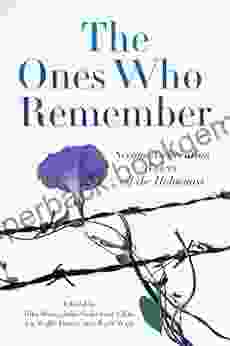
 Bryan Gray
Bryan GrayThe Second Generation: Voices of the Holocaust
The Holocaust was one of the most horrific...

 Douglas Foster
Douglas FosterWalking the Fields of the Newfoundland Dead
In the heart of the rolling countryside of...
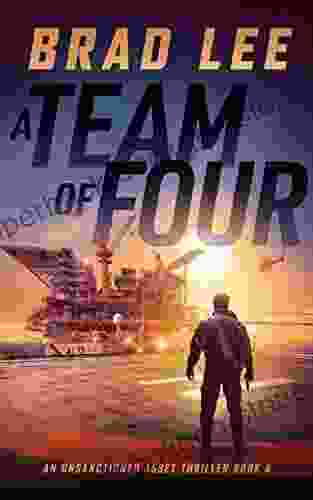
 Henry James
Henry JamesThe Unsanctioned Asset: A Gripping Thriller Set in a...
In the realm of espionage thrillers, The...

 Devon Mitchell
Devon MitchellPainting En Plein Air: Capturing the Essence of Nature on...
Painting en plein air, or painting...
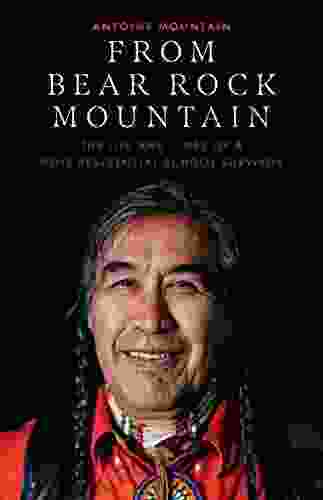
 Damon Hayes
Damon HayesThe Life and Times of Dene Residential School Survivor
Residential schools...
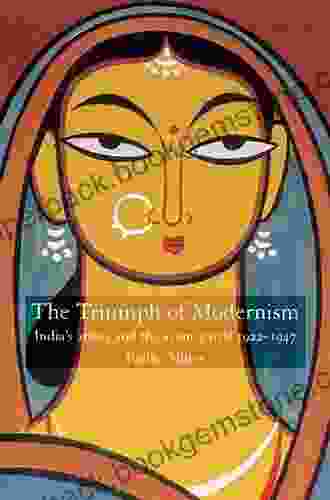
 Steve Carter
Steve CarterIndia Artists and the Avant Garde: 1922-1947
The term "avant-garde" is...
4.3 out of 5
| Language | : | English |
| File size | : | 1724 KB |
| Text-to-Speech | : | Enabled |
| Screen Reader | : | Supported |
| Enhanced typesetting | : | Enabled |
| Word Wise | : | Enabled |
| Print length | : | 393 pages |
| Lending | : | Enabled |


